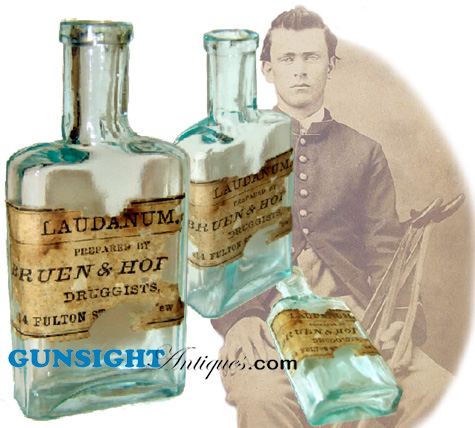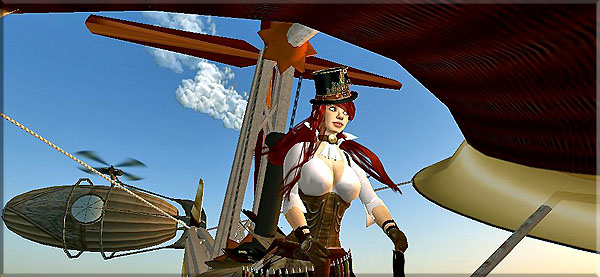
ARMADA Event
Time: Saturday, March 21, 2009 from 3pm to 4pm SLT
Location: Onerioi Club & Reading Room
Event Type: aimless talk about literature and inspiration
Upon the slate for discussion we shall be speculating wildly about those delightful diversions that have enhanced the muses of our great contemporary writers. Bring with you a snippet of prose or poetry that you believe might have been written in the throes of the "deadly-deep." Or just bask in the smokey haze of good fellowship.
we may also imbibe of the forbidden fruit ourselves to see if it should inspire us to wax rhapsodic or are visited by the creative muse....

if you should come to the Oneiroi Club & Reading room and find the main floor empty


Opium Use in Nineteenth Century British Literature
A brief history on opium culture and British literature in the nineteenth century.

"Opium! dread agent of unimaginable pleasure and pain!"
Silkworms and Spiders" by Charles Tennysonfrom Sonnets and Fugitive Pieces (Cambridge: B. Bridges, 1830).
The worm long fosters his transforming sleep,
But claims th' unalienable life again,
Which tho' it be but one, yet seemeth twain,
The trance between is all so deadly-deep:
The careful spider spreads before his lair
The web, ygather'd near his filmy heart
Withouten throes or any vital smart,
And of his entrails makes his foes a snare:
In both a mighty mystery resides,
A truth, on whose developement they thrive; 10
One for the cravings of his life provides,
One weaves himself another way to live;
To search the secret is beyond our lore,
And man must rest, till God doth furnish more!
http://drugs.uta.edu/opium5.html
Opium as a Possible Influence upon the Alice Books
By Kate Connell - '97 (English 61 1993)
 he widespread use of opium during the Victorian period may have influenced or been reflected in Alice's Adventures In Wonderland. Mind altering experiences resulting from narcotics relate nicely to some of the detailed descriptions in the Alice books, such as the growing and shrinking and the image of the caterpillar smoking the hookah. The complex dream atmosphere which Alice lives through can easily be compared to a mind-altering drug experience. The idea of eating a mushroom or drinking from a bottle that causes one to feel altered in some way parallels drug experience as well.
he widespread use of opium during the Victorian period may have influenced or been reflected in Alice's Adventures In Wonderland. Mind altering experiences resulting from narcotics relate nicely to some of the detailed descriptions in the Alice books, such as the growing and shrinking and the image of the caterpillar smoking the hookah. The complex dream atmosphere which Alice lives through can easily be compared to a mind-altering drug experience. The idea of eating a mushroom or drinking from a bottle that causes one to feel altered in some way parallels drug experience as well.
In Carroll's time five out of six families used opium habitually (Wohl 34-35) Infant mortality was an extremely common result of use of the narcotic. It was said that infants "shrank up into little old men" when they became sick (Wohl 34-35). This image is strangely similiar to that of the duchess's baby turning into a pig.
"The baby grunted again, and Alice looked very anxiously into it's face to see what was the matter with it. There could be no doubt that it had a very turn-up nose, much more like a snout than a real nose; also its eyes were getting extremely small for a baby. altogether Alice did not like the look of the thing at all. 'But perhaps it was only sobbing,' she thought, and looked into its eyes again, to see if there were any tears.
No, there were no tears. 'If you're going to turn into a pig, my dear,' said Alice, seriously, 'I'll have nothing more to do with you. Mind now!' The poor little thing sobbed again (or grunted it was impossible to say which), and they went on for some while in silence."
Regardless of whether or not the books are written as a result of opium use, it seems very likely that they refer to various aspects of its use. Perhaps Carroll, who loved children, argued its harmfulness to children. Or maybe it was included simply as a sign of the times -- a reflection of the age.
http://www.alice-in-wonderland.net/explain/ alice816.html
Drug influences in the books
Makinen, R. e.a., Alice in Wonderland: Interactions between a book and changing cultures, MNU Bulletin II 1971 (1-2).
 rugs enthusiasts relate Alice's adventures to the "trip". Drugs heighten awareness to one's surroundings. Accompanying this stronger sense of awareness is sometimes a "slowing down" of one's sense of time and movement.
rugs enthusiasts relate Alice's adventures to the "trip". Drugs heighten awareness to one's surroundings. Accompanying this stronger sense of awareness is sometimes a "slowing down" of one's sense of time and movement.
This "slowing down" sensation is found in the very first chapter of Alice's Adventures in Wonderland, when she is falling down the rabbit hole. While falling, "she had plenty of time as she went down to look about her, and to wonder what was going to happen next."
The mind expanding drugs also produce an "orgy of vision". Alice's trips through Wonderland and the looking glass certainly contain an abundance of imaginative visual experiences. At every turn Alice comes into contact with what could be termed hallucinogetic animals and objects.
One specifically good example of this is the disappearing and reappearing Cheshire Cat. The fading grin of the Cheshire Cat is one spectacular imaginative psychedelic vision. Another good example is the Caterpillar. His hookah, or water pie, has become a common way to inhale marijuana. The Caterpillar also imparts some very interesting advice. That is, to eat the mushroom. The mushroom can expand the mind as much as it did Alice's height.
http://www.alice-in-wonderland.net/explain/ alice817.html
Absinth was a popular choice in these dens.
Opium smokers in the East End of London, 1874
Laudanum was a wildly popular drug during the Victorian era. It was an opium-based painkiller prescribed for everything from headaches to tuberculosis. Victorian nursemaids even spoon fed the drug to cranky infants, often leading to the untimely deaths of their charges.
Originally, Laudanum was thought of as a drug of the working class. As it was cheaper than gin it was not uncommon for blue-collar men and woman to binge on laudanum after a hard week's work. Use of the drug spread rapidly. Doctors of the time prescribed it for almost every aliment. Many upper-class women developed habits.
The outbreak of tuberculosis may have been another factor in the drug's rising popularity. For a short period of time the tuberculosis "look" (very pale skin and frequent fainting spells) was quite in vogue. Victorian women went to great lengths to emulate the look, often taking arsenic to pale the skin (slowly poising themselves to death).
Laudanum's biggest clam to fame however was its use by the romantic poets. Many of the Pre-Raphaelites (Among them Lord Byron, Shelly and others) were know to indulge. The image of the romantic poet, pale, morose, drunk on absinthe and laudanum is a common one. The film Gothic portrays the stereotypical image of that society. In reality, most of the PRB were heavy drinkers first and formost. 
Because of its easy, inconspicuous consumption, many Victorian writers and artists chose to satisfy their "yens" for opium by taking it in the laudanum form. In this way they could develop a private, discrete habit rather than sharing their vice with strangers at opium dens, where the drug was smoked by passing pipes from one user to another.
Elizabeth Barrett Browning began swallowing laudanum to treat her childhood spinal tuberculosis and became a lifelong addict, even suffering from a miscarriage due to her abuse of the substance. But the drug also provided a source of poetic inspiration. Letters exchanged between Elizabeth and Robert Browning are filled with images of scarlet poppies, alluding to Elizabeth's laudanum addiction.Elizabeth Siddal, Charles Dickens and Wilkie Collins.


To see All the Pictures from this event pray, dear reader go HERE
Miss Viv Trafalgar added this interesting text for our discussion...
Percy Bysshe Shelley. 1792–1822
610. Ode to the West Wind
I
O WILD West Wind, thou breath of Autumn's being
Thou from whose unseen presence the leaves dead
Are driven like ghosts from an enchanter fleeing,
Yellow, and black, and pale, and hectic red,
Pestilence-stricken multitudes! O thou 5
Who chariotest to their dark wintry bed
The wingèd seeds, where they lie cold and low,
Each like a corpse within its grave, until
Thine azure sister of the Spring shall blow
Her clarion o'er the dreaming earth, and fill 10
(Driving sweet buds like flocks to feed in air)
With living hues and odours plain and hill;
Wild Spirit, which art moving everywhere;
Destroyer and preserver; hear, O hear!
II
Thou on whose stream, 'mid the steep sky's commotion, 15
Loose clouds like earth's decaying leaves are shed,
Shook from the tangled boughs of heaven and ocean,
Angels of rain and lightning! there are spread
On the blue surface of thine airy surge,
Like the bright hair uplifted from the head 20
Of some fierce Mænad, even from the dim verge
Of the horizon to the zenith's height,
The locks of the approaching storm. Thou dirge
Of the dying year, to which this closing night
Will be the dome of a vast sepulchre, 25
Vaulted with all thy congregated might
Of vapours, from whose solid atmosphere
Black rain, and fire, and hail, will burst: O hear!
III
Thou who didst waken from his summer dreams
The blue Mediterranean, where he lay, 30
Lull'd by the coil of his crystàlline streams,
Beside a pumice isle in Baiæ's bay,
And saw in sleep old palaces and towers
Quivering within the wave's intenser day,
All overgrown with azure moss, and flowers 35
So sweet, the sense faints picturing them! Thou
For whose path the Atlantic's level powers
Cleave themselves into chasms, while far below
The sea-blooms and the oozy woods which wear
The sapless foliage of the ocean, know 40
Thy voice, and suddenly grow gray with fear,
And tremble and despoil themselves: O hear!
IV
If I were a dead leaf thou mightest bear;
If I were a swift cloud to fly with thee;
A wave to pant beneath thy power, and share 45
The impulse of thy strength, only less free
Than thou, O uncontrollable! if even
I were as in my boyhood, and could be
The comrade of thy wanderings over heaven,
As then, when to outstrip thy skiey speed 50
Scarce seem'd a vision—I would ne'er have striven
As thus with thee in prayer in my sore need.
O! lift me as a wave, a leaf, a cloud!
I fall upon the thorns of life! I bleed!
A heavy weight of hours has chain'd and bow'd 55
One too like thee—tameless, and swift, and proud.
V
Make me thy lyre, even as the forest is:
What if my leaves are falling like its own?
The tumult of thy mighty harmonies
Will take from both a deep autumnal tone, 60
Sweet though in sadness. Be thou, Spirit fierce,
My spirit! Be thou me, impetuous one!
Drive my dead thoughts over the universe,
Like wither'd leaves, to quicken a new birth;
And, by the incantation of this verse, 65
Scatter, as from an unextinguish'd hearth
Ashes and sparks, my words among mankind!
Be through my lips to unawaken'd earth
The trumpet of a prophecy! O Wind,
If Winter comes, can Spring be far behind? 70






1 comment:
I'm totally impressed by your ruminations. I'm lucky if I manage a paragraph blogwise.
We really really really need to plan an exploration together and drag the other ladies with us.
Post a Comment